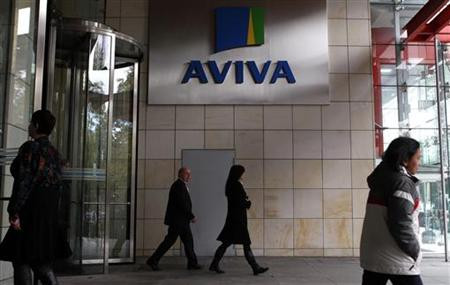Aviva Shareholders Revolt Against Executive Pay Packages

Aviva shareholders struck back at the British insurers' plans for executive pay and bonuses only days after CEO Andrew Moss agreed to waive his own pay rise following criticism over his performance.
Investors owning more than 800,000 shares cast proxy votes against Aviva's remuneration proposals at the company's annual general meeting in London Thursday, a non-binding figure representing more than 54 percent of the votes cast. Around 152,000 shares abstained.
Aviva, the UK's second largest insurer, is the lastest European firm to face mounting shareholder determination to align executives' pay packets more closely with performance.
Moss was due for a 5 percent pay rise, which would have taken it to £1m a year. In 2011, he earned nearly £2.7m from his total remuneration package, which included a £951,000 salary, £1.16m in stock and cash bonuses, a £480,000 long-term incentive plan and a further £98,000 in other benefits.
Aviva's stock has dropped nearly 58 percent since Moss became CEO in 2007. Shares in the group edged nearly 1 percent higher in London trading Thursday, changing hands at 311.66p.
Aviva is also in the middle of a broader review of its executive pay after shareholders voiced earlier concerns.
"We take the views of our shareholders very seriously. I am disappointed that we haven't done that as well as we should have on this occasion," said Scott Wheway, chairman of Aviva's remuneration committee on Monday. "A number of shareholders have indicated that they would like to see a different approach to the way we compensate senior directors on recruitment and an even closer correlation between our pay packages and shareholder returns. Having listened to them, we have sought to address their concerns and will continue to engage with them on this matter."
Meanwhile, shareholder revolt over excessive executive compensation packages has hit the media sector, with leading shareholers at Trinity Mirror calling for a reduction in its chief executive, Sly Bailey's pay, according to the Financial Times.
Shareholders are said to be demanding changes to her £1.7m pay package, as Trinity's market capitalisation has fallen under her eight-year stewardship from £1.1bn to its current £80.2m. According the FT report, they have also pointed out that the company hasn't paid a dividend since 2008.
© Copyright IBTimes 2025. All rights reserved.






















